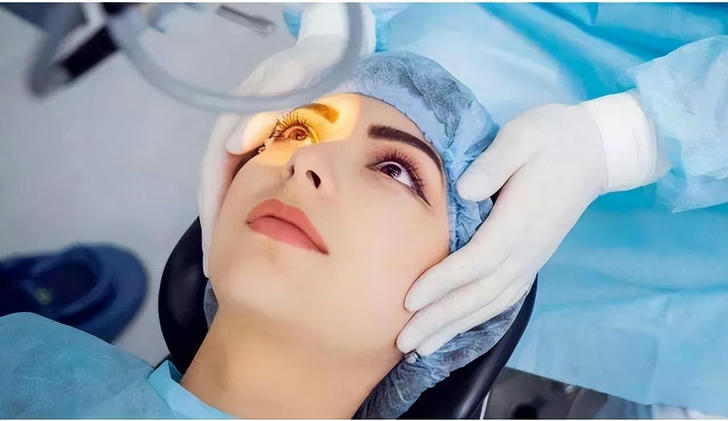👁️ Laser Eye Surgery in Britain: How Age Influences Procedure Choices and Pricing
Laser eye surgery is a common solution in Britain for vision correction, including myopia, hyperopia, and astigmatism. This article explores how age affects the types of laser eye surgery available, their costs, and suitability, offering a detailed overview of procedures and pricing based on different age groups.

🔹 What is Laser Eye Surgery?
Laser eye surgery reshapes the cornea using precision laser technology, helping the eye focus light more effectively. The main procedures include:
• LASIK: Involves creating a corneal flap and reshaping underlying tissue.
• PRK: Removes the surface layer of the cornea before laser correction.
• ReLEx SMILE: A minimally invasive method where a lenticule is removed via a small incision.
The Royal College of Ophthalmologists (RCOphth) recommends that patients undergo a full eye health assessment before choosing a method.
🔹 Typical Costs and Payment Options in Britain
Prices vary depending on clinic, surgeon, technology used, and type of treatment. Below is an estimate per eye:
| Procedure | Estimated Cost per Eye | Notes |
|---|---|---|
| LASIK | £1,000 – £2,200 | Fast healing, suitable for many prescriptions |
| PRK | £900 – £1,700 | Good for thinner corneas, longer recovery |
| ReLEx SMILE | £1,800 – £2,500 | Newer method, fewer side effects |
According to a 2024 report by the British Association of Refractive Surgery, prices in London and major cities are about 10–15% higher than in regional centres.
Many clinics offer installment plans, typically over 12–24 months.
🔹 Age-Related Procedure Options and Pricing
Age influences both eligibility and price due to the complexity of the case and likelihood of additional vision issues:
| Age Group | Common Procedures | Price Range per Eye | Considerations |
|---|---|---|---|
| Under 25 | LASIK, SMILE | £1,000 – £2,200 | Vision may still be changing; surgery often delayed |
| 25 to 40 | LASIK, PRK, SMILE | £1,200 – £2,300 | Most suitable age group for long-term correction |
| 40 to 55 | Monovision LASIK, PRK | £1,800 – £2,700 | May address early presbyopia; monovision simulation advised |
| Over 55 | RLE (Refractive Lens Exchange), PRK | £2,500 – £5,000+ | Often recommended due to cataract risk or lens changes |
A study published in BMJ Open Ophthalmology (2023) found that 82% of patients aged 26–45 reported stable vision and no enhancements needed five years post-LASIK.
🔹 Procedure Overview and Recovery Expectations
🔹 Procedure Overview and Recovery Time
• Initial Consultation: Includes corneal topography, tear film analysis, and prescription stability review.
• Surgery Day: The procedure typically lasts 10–30 minutes per eye.
• Recovery:
• LASIK and SMILE: Functional vision often returns in 24–48 hours.
• PRK: 7–10 days to regain normal vision.
• RLE: Recovery may take several weeks, with vision stabilising gradually.
Clinics usually include follow-up appointments in the base price to monitor healing and results.
🔹 How to Choose a Clinic in Britain
Before undergoing surgery, consider the following:
• Accreditation: Ensure the clinic is regulated by the Care Quality Commission (CQC).
• Surgeon Experience: Look for surgeons registered with the General Medical Council and trained in refractive surgery.
• Technology: Clinics using modern tools such as femtosecond lasers or ZEISS systems may offer more accurate results.
• Transparency: Confirm whether consultation, follow-up care, and enhancement procedures are included in the quoted price.
Well-known providers in Britain include:
• Optical Express
• Optimax
• Ultralase
• London Vision Clinic
• Centre for Sight
🔹 Frequently Asked Questions (FAQ)
Is laser eye surgery available through the National Health Service (NHS)?
Laser surgery is considered elective for vision correction and is not usually covered unless for medical necessity, such as post-injury or post-transplant situations.
Are results permanent?
Laser procedures often provide long-term correction. However, age-related vision changes such as presbyopia may require additional treatment or reading glasses later in life.
Is there a high risk of complications?
Complications are rare when pre-operative screening is thorough. Possible effects include dry eyes (reported by 20–30% of LASIK patients), night glare, or under/overcorrection.
Can people with thin corneas still qualify?
Yes. PRK or SMILE are generally more suitable than LASIK for individuals with thinner corneas.
What is the minimum age for laser eye surgery?
Most surgeons recommend waiting until at least 18–21 years of age with two years of stable vision.
Can laser surgery correct both distance and reading vision?
Yes, in some cases. Procedures like monovision LASIK or multifocal lens implants (in RLE) can help, though adaptation varies among patients.
